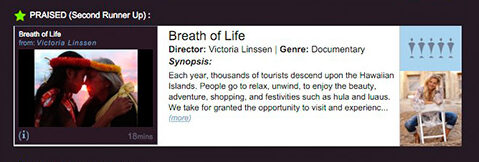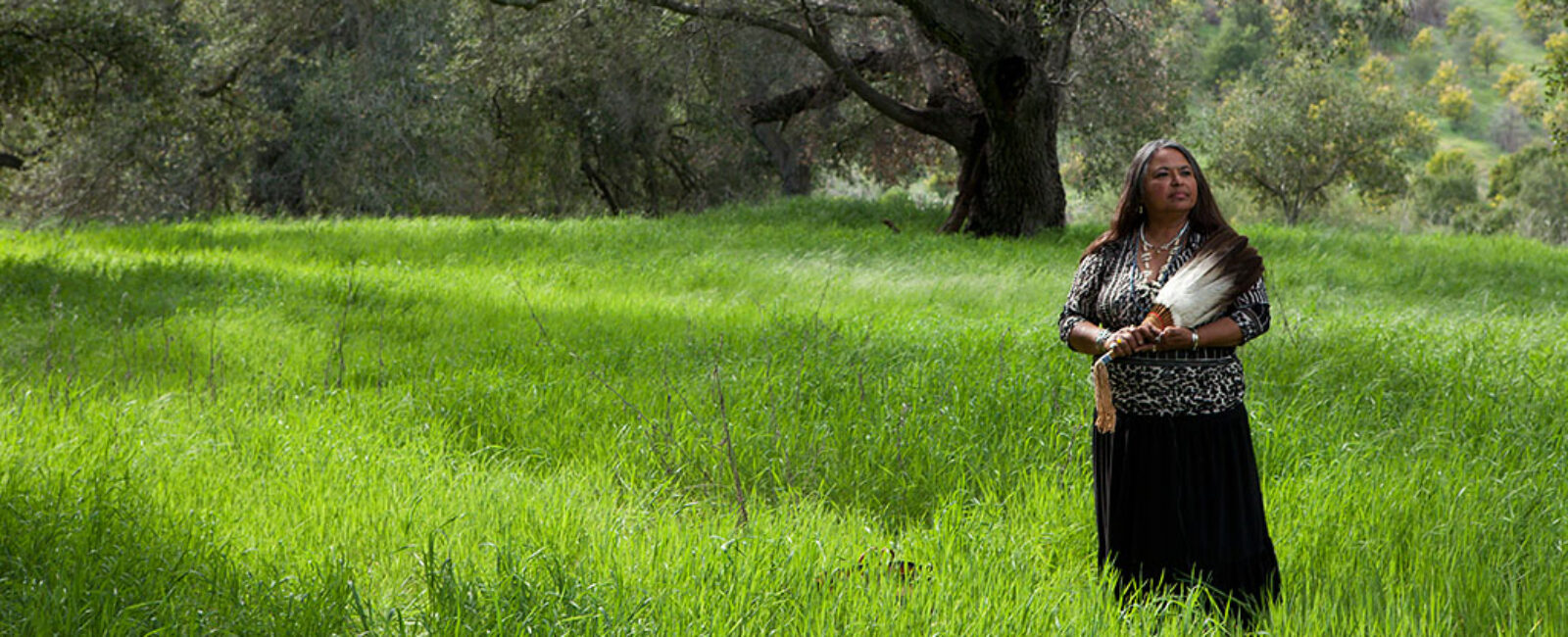
Breath of Life wins “Praised” award (2nd runner up) for Green Unplugged film festival!
Breath of Life is a short story about honoring the rich cultural traditions of the Hawaii islands and Hawaiian Indigenous Peoples.
Each year, thousands of tourists descend upon the Hawaiian Islands. People go to relax, unwind, to enjoy the beauty, adventure, shopping, and festivities such as hula and luaus. We take for granted the opportunity to visit and experience these beautiful islands. What many people don’t realize; however, is that there exists a rich cultural tradition on the islands, predicated by the Hawaiian’s deep connection to the ocean, to the land and to each other.
As early as 100 years ago, most Hawaiian’s lived in concert with nature. Emphasis was placed on living in harmony with self, with each other, and with the planet, honoring all of life as their relatives. Aloha was equated with love.
After Captain James Cook discovered the islands, things changed dramatically. They changed even more so after the USA’s illegal acquisition of the originally sovereign nation in 1893. Afterwards came throngs of outsiders and disease. Sacred knowledge began to be lost: through death, loss of language, exploitation, acculturation, lack of education and loss of land. I’ve heard it said that the original Hawaiian bloodlines are now being radically diluted: parents in Hawaii are possibly a mix of seven different cultures and their children as many as fifteen. And as tourists vacation, frolicking in the ocean, they are mostly unaware of their negative cultural and environmental impacts. Even the word Aloha itself has become misconstrued, tossed around with little to no recognition of its original meaning.
The aim of this film Breath of Life is to connect the audience with what it means to be a Hawaiian and to preserve ancient knowledge before it is lost. Kupunas, kahunas, kumus, teachers, elders and Hawaiian cultural experts were interviewed to provide a glimpse into what is most meaningful to the Hawaiian people. The Hawaiian Islands are much more than just a place to go eat, drink and be merry. They have a rich cultural heritage that needs to be preserved, recognized and respected. If the film establishes even a fraction of recognition and respect the Hawaiians so deeply deserve; if it helps people to re-learn the criticality of our connection with the earth and each other, then it will be a tremendous success indeed.
I am deeply blessed and honored to have met all of the people in my film and to have learned wisdom from them on my journey. This includes: Kupuna and activist, Uncle Charlie Maxwell, Kupuna and activist Uncle Robert Keli’iho’omalu, 44th generation Kahu nui and Ho’oponono teacher Haleaka Iolani Pule (Aunty Aka), Kumu Hula teacher, Keala Ching of the Nā Wai Iwi Ola (NWIO) Foundation, Kumu Hula teacher Pilialoha Christensen, cultural educator Joshua Lanakila Mangauil and Hawaiian cultural expert and executive director of the Olohana Foundation, M. Kalani Souza.
Since filming began in late 2011, three of my cherished friends and Hawaiian elders have passed into the Light: Uncle Charlie Maxwell, Uncle Robert Keluhoomalu and Aunty Aka Pule.
This film is dedicated to them with gratitude and love. It is currently being featured on Culture Unplugged and in the Tribal Film Festival.
